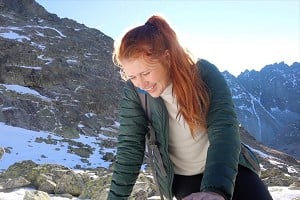
As climbers, we all understand the benefits our sport brings to our daily lives. Climbing, both indoors and out, gives us a community, builds our physical strength and has numerous benefits to our stress levels and personal mental health. For those with Autism Spectrum Disorders (ASDs), these positive aspects of climbing are particularly important and helpful.
Autism is a condition defined by the National Autistic Society as 'a life-long developmental disability that affects how people see the world and interact with others.' Autism is a spectrum condition, so it affects everyone differently, but some challenges are shared by many. Often, children with ASDs can find communicating with others and social integration with their peers difficult. Not only this, but having a disability can often lead to a perceived difference, affecting self-confidence and potentially creating a sense of exclusion. At a young age, sport, exercise and physical play with others is less accessible to autistic children because they find it harder to relate to other people and others often find it hard to relate to them. Without being able to easily participate in physical activity, they can struggle to enjoy the rewards of being active and a member of a sporting community, something most of us take for granted. Many charitable organisations and outdoor instructors across the UK are therefore beginning to use climbing as therapy for children with ASDs.
I spoke to outdoor instructor, Luca, who worked as a support worker and outdoor educator with Autistic children. He suggested that climbing outside had two main positive outcomes for the children he worked with: 'problem solving skills' and 'pro-social behaviours'. When learning to climb, children are working in a partnership. For example, belaying isn't the most exciting part of climbing, but gives them a huge level of responsibility for another person, allowing them to enjoy themselves and feel a sense of achievement. Climbing a route requires problem-solving skills to assess the most effective method of reaching the top. However, all aspects of being outside for a day necessitate planning. Luca noticed that even by teaching children how to pack for a day out climbing, they quickly learned how to do this themselves. These self-caring skills are transferable to many everyday situations.
Luca also advocates climbing as a method of improving children's determination and resilience, characteristics that those with autism can struggle with in normal learning environments. He suggests that 'climbing can provide excellent opportunities to learn these skills [resilience, determination] which help not just in climbing but in life generally.'
Similarly, instructor Dean Russell, who teaches climbing to children with ASDs with 'Adventure Awaits' in Bristol, UK, has noticed a variety of improvements. He makes sure to keep a defined structure to his sessions, each with a goal to work towards and a focus on particular skills, such as flexibility and hand-eye coordination. Climbing requires complex motor-skills. When we're climbing and moving our hands and feet independently, we are developing our cross-lateral movement, balance and hand-eye coordination. These are vital to maintaining posture and muscular equilibrium, which are key to keeping us healthy throughout our lives.
What also seems to improve, in Dean's experience, is the children's focus: 'Getting prolonged focus in, let's be honest, an environment (noisy, busy, bright colours, etc) that shouldn't be a space that works for children on the Autistic spectrum, probably says a lot about the power of the sport.'
The feeling when all external problems melt away and all that matters is reaching the next hold is hugely relaxing and meditative. For children who struggle to concentrate, it is an enjoyable, but effective way to practise avoiding distractions. Even tying knots and belaying are excellent practice in performing a task that requires constant concentration. The potentially dangerous nature of the sport also helps younger children to learn how to follow instruction effectively and communicate seriously to climbing partners. From chatting to parents, Dean learnt that the children taking part in his sessions were often calmer after a climb and slept much better.
The most important therapeutic benefits of climbing, probably to all of us, are the emotional, social and mental impacts. The climbing community is one of the most accepting and kind I've ever encountered. Climbing is (if you want it to be) a non-competitive, self-driven sport in which beginners are welcomed just as warmly as the elite. Moreover, climbing can help children with Autism defy negative expectations and build confidence in their own abilities. The instructors who help children with Autism get started in climbing introduce them into a supportive community where their world need not be limited, and they can enjoy the sport as much everyone does!
With special thanks to instructors, Dean Russell (www.adventure-awaits.co.uk) and Luca.
- REVIEW: Black Diamond Crag Clothes for Women 29 Nov, 2019

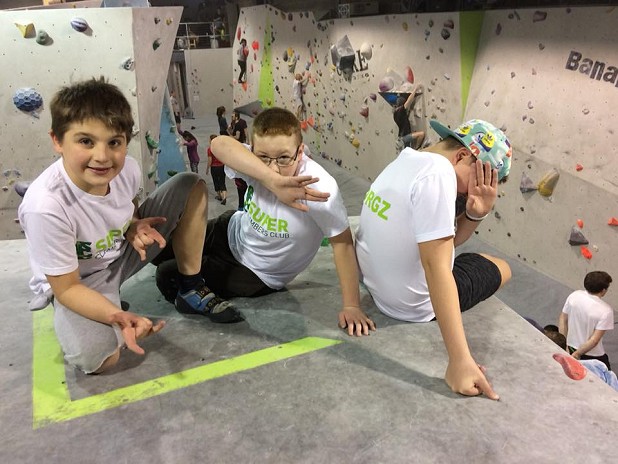

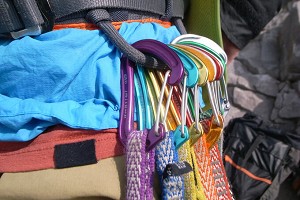
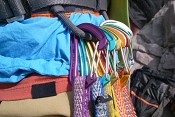
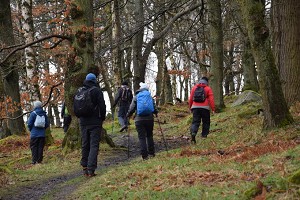
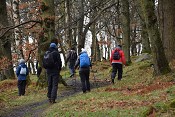








Comments
Since this article is entirely about climbing for children with autism, I'd suggest changing the title or at least the link text here.
There's still a serious lack of awareness that autistic children grow up and turn into autistic adults, and don't vanish in a puff of smoke when we turn 18; titling something "Climbing and Autism" then having it be it entirely about autistic children unintentionally perpetuates that.
A great point made by slab_happy.
For another perspective, although not rock climbing, there's a BBC documentary on air now (My Autistic Big Brother and Me) that explores how time spent in the mountains helps Spencer, a 47 year old with ASD.
Interesting viewing so far.
You have a point, but in fairness they did do an article about a young adult with Asperger's recently, and the article this thread relates to is well written and will be useful for some people with children. So, as a whole, UKC seem to have the right approach on the subject.
Is this not another one of those "climbing cures all ills" articles that emerge every now and again?
Usually written by a self appointed xx in climbing expert instructor, the articles lay claim to the wonders of climbing in treating difficult to diagnose and difficult to measure success ailments.
I am sure we have already seen climbing cures depression, chronic fatigue syndrome, crohns is ease and there will be others I have missed.
As ukc users age, will we see an article on treating altzeimers with climbing, or will we forget to write it.
Some sufferers of an ailment will find some benefit from physical activity.
The snake oil salesmen are moving on, they have discovered it is easier to use climbing as the snake oil. No expensive bottling required.
Now could someone please write an article on climbing and the cold/flu as I am laid up and grumpy and would love to go climbing and be cured.
I didn't see any claims of cures, just giving kids with autism the chance to experience things that they will enjoy and help them integrate better into society. Do you have some sort of problem with that?